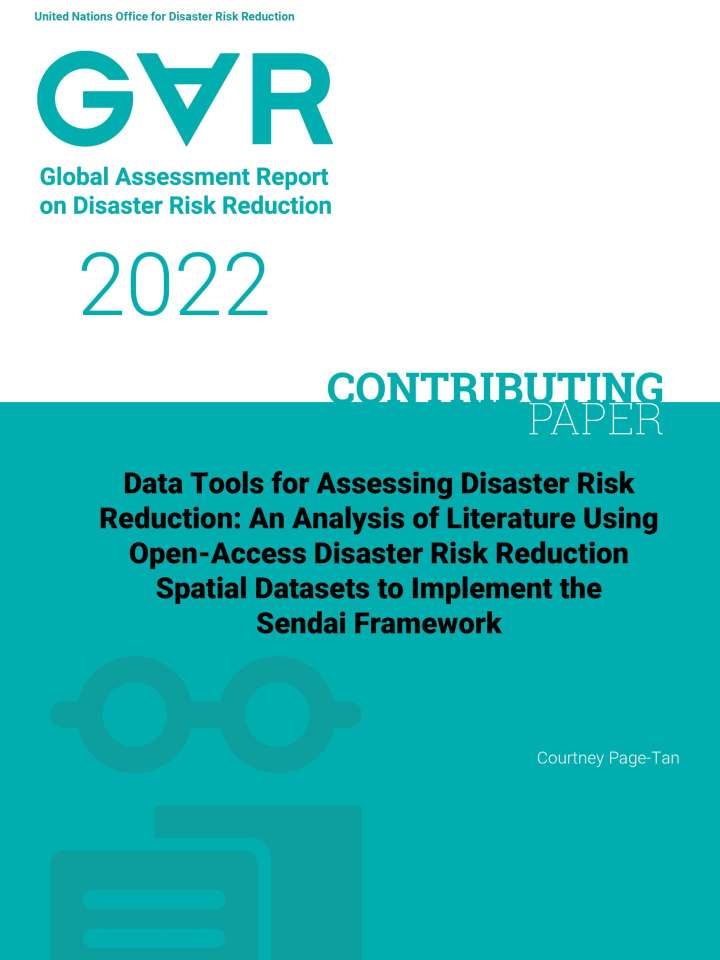Data tools for assessing disaster risk reduction: An analysis of literature using open-access disaster risk reduction spatial datasets to implement the Sendai Framework
This study explores the use of geospatial information, specifically open-access spatial data, and the implementation of the Sendai Framework for Disaster Risk Reduction 2015-2030, a framework designed to manage disaster risk. The priorities of the Sendai Framework are to (1) understand disaster risk; (2) strengthen disaster risk governance to manage risk; (3) invest in disaster risk reduction and resilience; and (4) enhance the capacity to recover from disasters. This study advances knowledge of implementing the Sendai Framework from publications that have utilized open-access spatial data and issues common to Framework implementation. This study also discusses how the issues could be addressed by those who have a vested interest in disaster risk reduction, from policymakers to community members.
This study reveals that the literature using open-access spatial data to study the implementation of the Sendai Framework cites real progress toward its goals. However, challenges remain, particularly issues in data quality and integrity; lack of resources and infrastructure; lack of political leadership or political corruption; and inconsistent standards with definitions and data collection. The findings from this review reveal that ensuring uniform standards; shared definitions; improved data quality; additional resources and infrastructure; and bottom-up approaches will be key to assessing implementation and progress toward the Sendai Framework.
